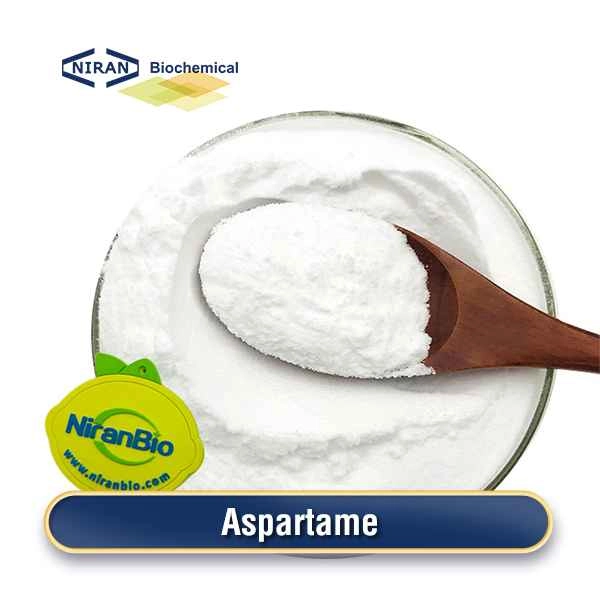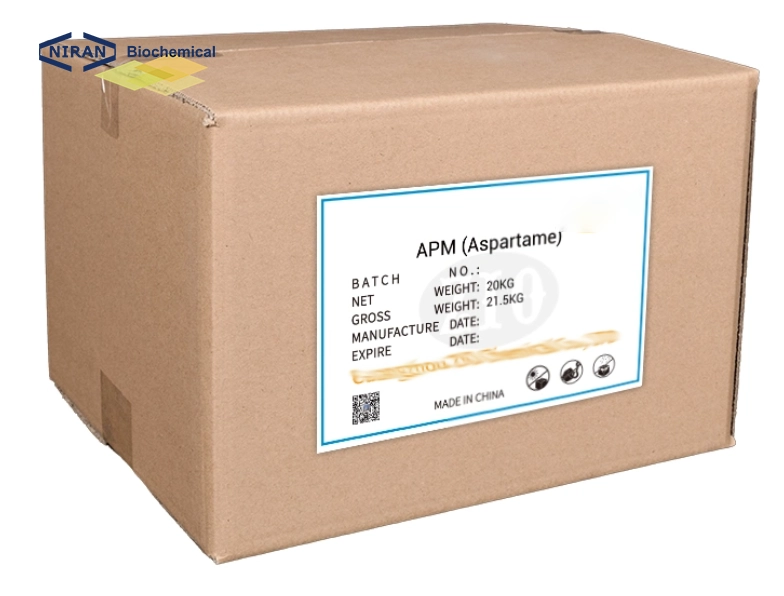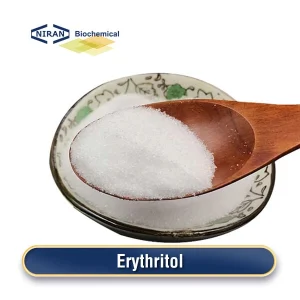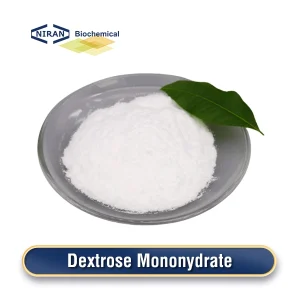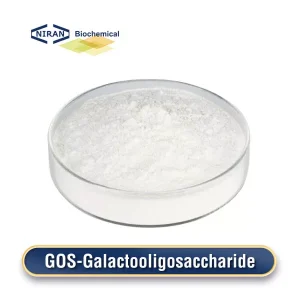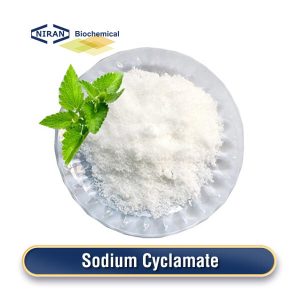Niran Biochemical
YOUR RELIABLE FOOD INGREDIENTS
Send Inquiry
Home » Products » Sweeteners » Aspartame
Aspartame
- CAS: 22839-47-0
- Chemical Formula: C14H18N2O5
- Certification: KOSHER, ISO, HALAL, FSSC22000, BRC, etc.
- Standard: FCCVIII / USP 36
- MOQ: 1000KG
- Shelf Life: 2 Years
Inquire Product
Product Description
What is Aspartame?
Aspartame is a natural functional oligosaccharide with high sweetness and non-deliquescent properties. It appears as a white crystalline powder. Because of its amazing sweetness and exceptionally low calorie content, it can be added to beverages, pharmaceutical items, or sugar-free chewing gum as a sugar alternative.
Common preparation methods for Aspartame are chemical synthesis and enzymatic methods. Among them, chemical synthesis is the earliest and most commonly used method. Its basic principle is to first esterify phenylalanine with methanol or ethanol to produce phenylalanine methyl ester or phenylalanine ethyl ester, and then condense with aspartic acid under acidic conditions to produce aspartame.
This process requires a certain temperature, pressure and catalyst, and will produce some by-products, such as bitter β-aspartame. The enzymatic method is a new method developed in recent years. Its advantages are strong specificity, high conversion rate, mild conditions and few by-products.
The principle of the enzymatic method is to use a special microbial strain to convert phenylalanine and aspartic acid into corresponding acid methyl esters through a fermentation process, and then use a special enzyme to directly synthesize the two acid methyl esters into aspartame. This process does not require the addition of any external solvents or catalysts and can be carried out at room temperature and pressure.
Related parameters:
| Items | Standards |
| Assay (Titrimetric) | 98.0-102.0% (dried basis) w/w |
| Specific Rotation [α]D20 | +14.50°~+16.50° |
| Loss On Drying | ≤4.50% |
| Residue On Ignition(Sulphate Ash) | ≤0.20% |
| PH (0.8% w/v in water) | 4.50-6.00 |
| Diketopiperazine (DKP)5-benzyl-3.6-dioxo-2-Piperazineacetic acid | ≤1.5% |
| Other Related SubstancesChromatographic Impurities | ≤2.0% |
| Transmittance | ≥90.0% |
| Heavy Metal(as Pb) | ≤10 ppm |
| Arsenic (as As) | ≤ 5 ppm |
| Lead | ≤ 1 ppm |
| Residual Solvents | Meets the requirements |
Recommended dosage:
| Food name | Maximum usage(g/kg) |
| Carbonated drinks | 0.6 g/kg |
| Fruit drinks | 0.5 g/kg |
| Yogurt | 0.3 g/kg |
| Milk drinks | 0.3 g/kg |
| Bread | 0.4 g/kg |
| Soft candy | 0.6 g/kg |
| Hard candy | 0.6 g/kg |
| Chocolate | 0.3 g/kg |
| Soy sauce | 0.3 g/kg |
| Vinegar | 0.3 g/kg |
| Ketchup | 0.3 g/kg |
| Ham | 0.3 g/kg |
| Sausage | 0.3 g/kg |
| Bacon | 0.3 g/kg |
| Ice cream | 0.5 g/kg |
| Potato chips | 0.3 g/kg |
| Puffed food | 0.3 g/kg |
Aspartame has a wide range of uses
1. Beverages: Applicable to all kinds of carbonated beverages, fruit juice drinks, tea drinks, etc., to provide high sweetness while maintaining low calories.
2. Dairy products: Including cheese, yogurt, ice cream, etc., which can increase sweetness without increasing calories.
3. Baked goods: Such as cakes, biscuits, bread, etc., can replace part or all of the sugar to achieve the effect of reducing calories.
4. Desserts and pastries: Provide sweetness and are also suitable for the production of low-sugar or sugar-free foods.
5. Chewing gum and candy: As the main sweetening ingredient to enhance sweetness and taste.
6. Medicines and health products: Used in some oral medicines and nutritional supplements to mask the bitterness of medicines or increase the taste.
7. Canned and prepared foods: Used to enhance the sweetness of food while controlling the total sugar intake.
8. Vinegar and condiments: Used to make low-sugar or sugar-free vinegar products and sauces to meet the health needs of different consumers.
User asked question:
Q: What are the advantages of aspartame over sucralose?
A: 1. Sweetness intensity and calories: Aspartame is about 200 times sweeter than sucrose, while sucralose is 600 times sweeter than sucrose, so it is used in smaller quantities and has lower calories.
2. Taste and natural sweetness: Aspartame tastes closer to natural sweetness and does not leave bitterness or other unpleasant tastes, while sucralose may bring a slight bitter taste at high concentrations.
3. Stability: Aspartame has good stability under common food processing conditions and is not easy to decompose or lose its sweetness, while sucralose may degrade under high temperature conditions.
4. Scope of application: Aspartame is suitable for a variety of foods and beverages, including baked goods, beverages, dairy products, etc., and is widely used in the food industry. Sucralose also has a wide range of applications, but attention should be paid to its stability under certain food processing conditions.

